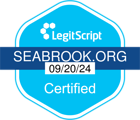How to Make It Through Each Day Without Drinking
When you first commit to stop drinking, you’ve taken your first steps on the pathway to sobriety. In the earliest stages of recovery, getting from morning to night without giving in or giving up can feel incredibly challenging. However, even people who have been sober for years can have a bad day where they encounter challenging situations that tempt them to pick up the bottle again. With these difficulties in mind, we’ve put together a guide to help you get through each day without drinking.
1. Know Your Triggers
Alcoholism is a chronic disease, and learning to manage it by recognizing your triggers is one of the most fundamental elements of recovery. Notice specific times, occasions or environments that make you feel like having a drink, and come up with a way to counteract them. For example, if you used to stop by the same bar frequently to “take the edge off” on your way home from work, you may need to find a new route home that doesn’t involve passing by that spot. Come up with healthy after-work alternatives instead, such as hitting the gym.
2. Find Other Ways to Fill Your Time
Before you got sober, you probably spent a significant portion of your time drinking. Because humans are creatures of habit, you may have gotten used to drinking at specific times of day. For example, if you always had a glass of wine with dinner, which turned into several more glasses throughout the evening, you now have a stretch of time you need to fill if you are trying to stay sober. Discover new hobbies to add to your life, and you’ll find it easier to make it through the day without turning to alcohol.
3. Have a Support Network
When you’re having a tough time, make sure you have someone sympathetic you can turn to. That person may be your sobriety sponsor, your therapist or a family member or friend who understands what you are going through and supports your goals. Talking to others about what you’re going through can help you make healthier choices not to drink.
4. Stick to a Routine
Schedule your days so you eat, work and exercise at specific times. Make sure you are eating a balanced diet and staying hydrated, and try to get up and go to bed at the same time every day. Establishing a routine and being consistent with it is a crucial step toward success in recovery because it ensures you are planning your time for maximum efficiency.
5. Keep a Sobriety Journal
Journaling in recovery is one of the most useful ways to track the progress you have made since you stopped drinking. The act of committing your thoughts to paper can also be a therapeutic exercise that helps you get to the root of why you are feeling a certain way about something. If you are experiencing cravings for alcohol, write about how you feel and why you think you are having an off day. Then, make a list of productive things you can do instead.
Offering You Real Recovery
If you’re ready to free yourself from the burdens of your addiction, Seabrook can be a beacon of hope. Our accredited treatment campuses combine traditional 12-step recovery principles with complementary healing and wellness programs in a comfortable, gender-specific setting. We also offer a comprehensive aftercare program that reduces the chances of relapse. Reach out to our admissions team to learn more about how we can help you achieve long-term freedom from substance misuse.





